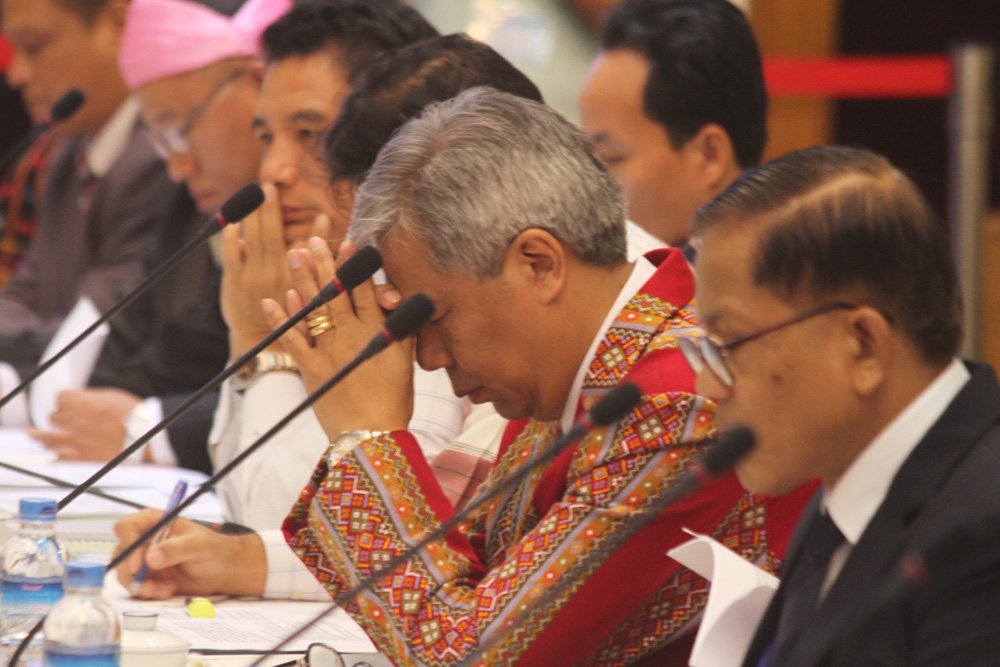The Burmese government’s Union Peace-making Work Committee (UPWC) and the ethnic armed groups’ Nationwide Ceasefire Coordination Team (NCCT) kicked off a sixth round of negotiations at the Myanmar Peace Centre in Rangoon on Monday.
Hopes are high that the talks, scheduled for five days, will result in a single-text agreement for a nationwide ceasefire; it was announced at the end of the last round in August that only five points were left to be discussed. Notwithstanding, some crucial military issues need to be resolved.
“We expect to wrap up discussions on the draft as soon as possible, but we have to keep on amending it until we finally reach the point where we can all agree – we still have issues left to discuss on military issues, such as troop deployment and such,” said Maj-Gen Gun Maw of the Kachin Independence Organisation.
“And of course there will still be a lot of work to be done after an agreement is signed, so this round of negotiations should not be regarded as end of the peace-building process.”
Leading the government delegation is Minister Aung Min, the deputy head of the UPWC. Speaking to DVB on Monday, he said, “For the moment we at the fourth-draft stage of a single-text agreement containing 104 points – we have only five left to discuss.”
[related]
He added: “Our main objective is to find a solution to political problems via political means – to facilitate an all-inclusive political dialogue.”
A newly appointed government representative, Lt-Gen Khin Zaw Oo, attended the Rangoon parlay alongside chief negotiator Aung Min, while the ethnic alliance was headed by Nai Hongsa of the New Mon State Party.
This week’s talks are expected to see conclusive discussions on: a framework for political dialogue; who will sign the nationwide ceasefire agreement; troop deployment; a code of conduct for troops; the formation of a ceasefire monitoring joint-committee; and whether or not to prohibit recruitment drives.
The last point, according to the current draft, prohibits ethnic armed groups from recruiting soldiers in the post-ceasefire period, a contentious point as, of course, as the country’s national armed forces, the Burmese government side will continue recruiting.
Naypyidaw has previously stated an intention to begin political dialogue by the beginning of 2015.



